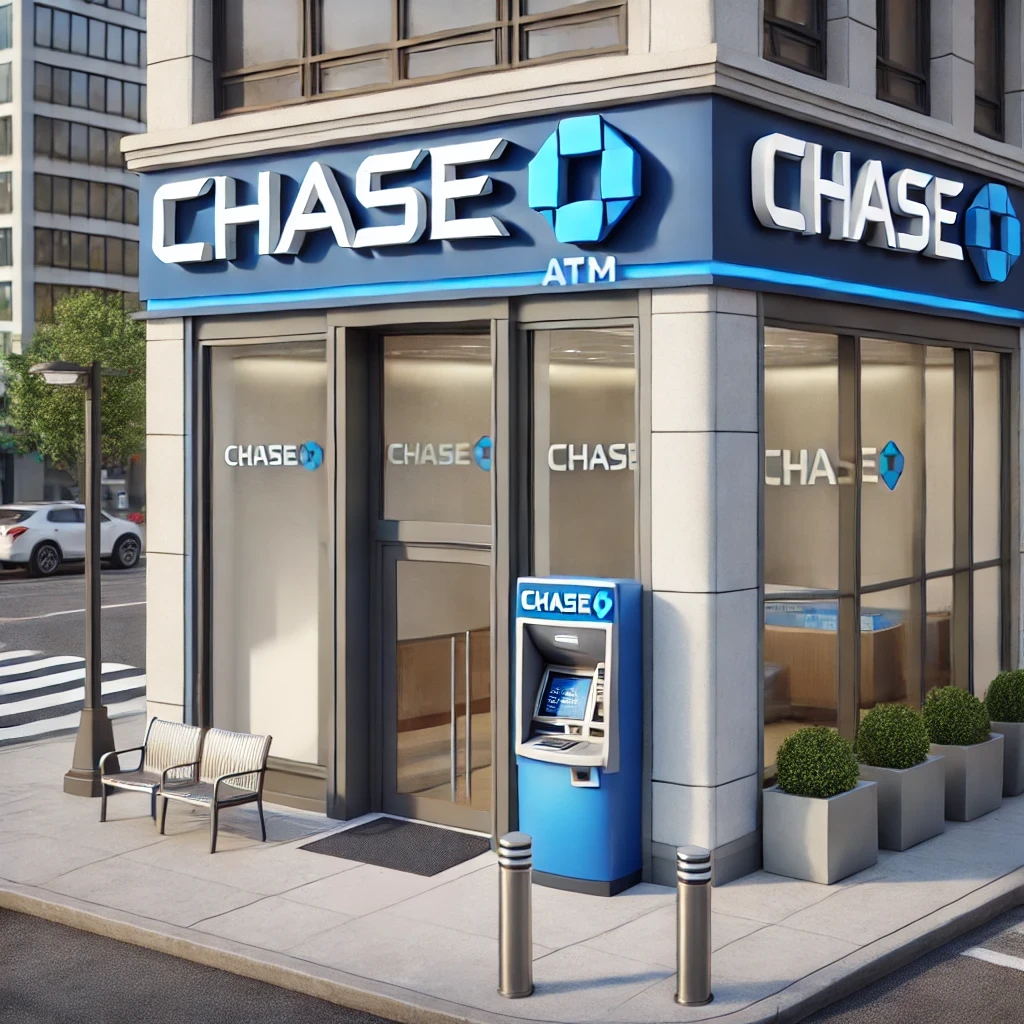The ATM Loophole That’s Costing Users More Than They Bargained For
In recent weeks, a Chase Bank ATM glitch has captivated social media users and opportunistic individuals alike. This technical oversight, which allowed customers to withdraw funds from fraudulent checks, has spiraled into a cautionary tale of financial misadventure. As the dust settles, those who attempted to exploit this glitch face a sobering reality: severe legal consequences, frozen accounts, and economic turmoil extending far beyond a simple banking error.
5 Key Points
- Chase Bank ATM glitch allowed users to withdraw funds from fraudulent checks
- Exploiting the glitch is considered fraud and can lead to severe consequences
- Penalties may include negative account balances, frozen accounts, and jail time
- Legal ramifications vary by state and amount of money involved
- Chase has addressed the issue and warns against attempting to exploit it
Understanding the Chase Bank Glitch
The “Chase Bank glitch,” as it’s come to be known, emerged as a viral sensation on platforms like TikTok, where users shared videos detailing an apparent loophole in the bank’s ATM system. The exploit involved depositing a self-written check for an amount exceeding the account balance into a Chase ATM. Normally, banks take several days to verify checks before making funds available. However, this glitch allowed immediate access to some or all of the money listed on the deposited check.
The process seemed deceptively simple: write a check to yourself for a large sum, deposit it at a Chase ATM, and voilà – instant access to funds that weren’t actually in your account. Some users reported successful transactions of up to $40,000, leading to a frenzy of social media posts and attempted exploits.
The Mechanics of the Glitch
To understand why this glitch was so enticing, it’s important to grasp how check deposits typically work. When a check is deposited, banks usually place a hold on the funds to verify the check’s legitimacy and ensure the issuing account has sufficient funds. This process can take anywhere from a few days to a week.
The Chase glitch, however, bypassed this verification period. It allowed users to access funds immediately, creating a window of opportunity for those willing to take the risk. This immediate availability of funds is what made the glitch so appealing – and so dangerous.
The Reality of the Situation
Despite the initial excitement surrounding this apparent loophole, the consequences of exploiting the Chase Bank glitch are far from benign. Dr. James Mohs, an accounting professor at the University of New Haven, states unequivocally, “The intent to do this is nothing short of fraud.” This assessment is echoed by Chase Bank itself, which has addressed the issue and warned users against attempting to take advantage of the glitch.
The bank’s response has been swift and unequivocal. A Chase spokesperson emphasized, “Regardless of what you see online, depositing a fraudulent check and withdrawing the funds from your account is fraud, plain and simple.” This statement underscores the seriousness with which financial institutions view such exploits, regardless of how they’re discovered or shared on social media.
Legal Ramifications
The legal consequences for those who exploited the glitch can be severe and wide-ranging. Criminal law attorney Kevin Conway outlines potential penalties using New Jersey as an example:
- For amounts under $200: Up to 6 months in prison and a $1,000 fine
- For amounts between $200-$1,000: Up to 18 months in jail and a $10,000 fine
- For amounts between $1,000-$75,000: Up to 5 years in jail and a $15,000 fine
- For amounts over $75,000: Up to 10 years in jail and a $150,000 fine
These penalties are specifically for check fraud, with additional charges possible depending on the circumstances. It’s crucial to understand that the severity of the punishment often correlates with the amount of money involved in the fraudulent activity.
Conway further explains that the intent behind the action plays a significant role in determining the legal consequences. “If they cash the money, take the money, don’t give the money back, then it becomes criminal,” he states. “If they are bragging about it, that they know it’s a mistake, [then] it’s grand larceny. It doesn’t take much to become a felony.”
Financial Consequences
Beyond legal repercussions, individuals who attempted to exploit the glitch have reported significant and immediate financial consequences. Many users have shared videos showing massive negative account balances, sometimes exceeding $10,000. These negative balances occur when the bank identifies the fraudulent activity and deducts the improperly accessed funds from the account.
One user, who claimed to have tried the glitch, posted a follow-up video saying, “This Chase glitch s***, don’t do this s*** man.” His account showed a negative balance of $10,997.58. This stark reality check illustrates the speed at which banks can identify and respond to fraudulent activities, leaving users in severe financial distress.
Others have had their accounts frozen, limiting access to their funds and potentially causing further financial hardship. Account freezes can be particularly problematic, as they may affect legitimate funds in the account and disrupt regular financial activities like bill payments and day-to-day transactions.
Chase Bank’s Response
Chase Bank has confirmed that the issue has been addressed, demonstrating the bank’s ability to identify and rectify system vulnerabilities. The bank’s swift action underscores the seriousness with which financial institutions view such exploits and their commitment to maintaining the integrity of their systems.
Moreover, Chase’s public statements warn others who might be tempted to try similar exploits in the future. By clearly labeling the activity as fraud, the bank sends a message that such actions will not be tolerated and will be met with serious consequences.
The Psychology Behind the Exploit
Experts still need clarification on the motivation behind attempting such a risky financial maneuver. Dr. Mohs notes, “When it comes to intentional fraud, people’s motivations are always confusing, defy logic, and are hard to justify. Fraud is fraud, whether the amounts are small or not.”
This perspective raises questions about the role of social media in promoting risky or illegal behavior. The viral nature of the “Chase Bank glitch” videos on platforms like TikTok may have created a false sense of security or an “everyone’s doing it” mentality that clouded individual judgment.
Lessons Learned
This incident is a stark reminder that attempting to exploit financial systems, even when they appear to have vulnerabilities, can lead to severe consequences. It’s crucial for individuals to understand that digital trends promoting seemingly easy money are often too good to be true and can result in legal and financial troubles that far outweigh any temporary gains.
Financial literacy and a healthy skepticism towards “get rich quick” schemes are essential in navigating the modern digital landscape. Banks and financial institutions, while not infallible, have sophisticated systems in place to detect and respond to fraudulent activities. The Chase Bank glitch is a cautionary tale about the risks of outsmarting these systems.
FAQ
Q: What exactly was the Chase Bank glitch?
A: The glitch allowed users to deposit self-written checks for amounts exceeding their account balance into Chase ATMs and immediately withdraw the funds before the checks were verified.
Q: Is exploiting this glitch considered a crime?
A: Yes, it is considered fraud and can lead to criminal charges, including potential jail time and significant fines.
Q: What are the potential legal consequences of exploiting the glitch?
A: The consequences vary by state and amount involved, but they can include fines up to $150,000 and jail sentences up to 10 years for large amounts.
Q: How has Chase Bank responded to this issue?
A: Chase has addressed the glitch and warned users that attempting to exploit it is fraud. They may also pursue legal action against those who tried to exploit the situation.
Q: Can people really go to jail for trying this?
A: Yes, depending on the amount of money involved and the specific circumstances, jail time is a possible consequence for those who exploited the glitch.
Citations
Blasi, W. (2024, September 3). That ‘Chase Bank glitch’ could lead to negative balances, locked accounts — and jail time. MSN. https://www.msn.com/en-us/money/personalfinance/that-chase-bank-glitch-could-lead-to-negative-balances-locked-accounts-and-jail-time/ar-AA1pWCm8






